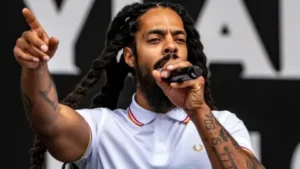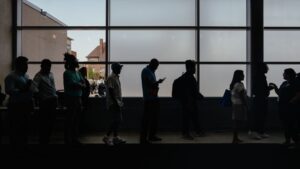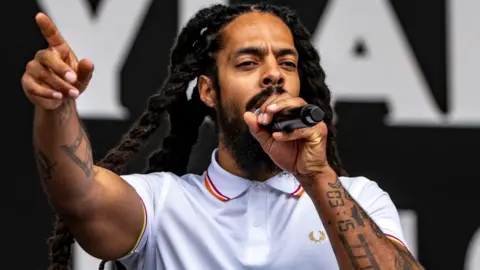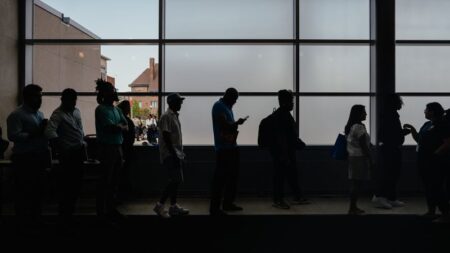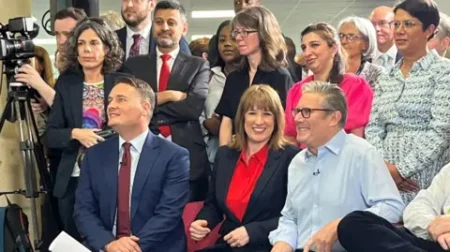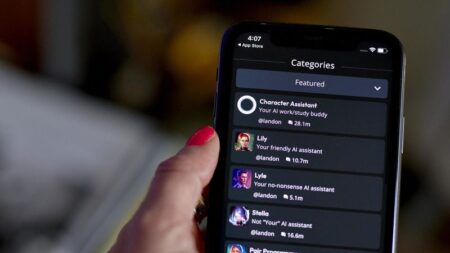The British Broadcasting Corporation (BBC) recently found itself in a challenging situation regarding the controversial performance of the punk duo Bob Vylan at the Glastonbury Festival. In the wake of events during their set, the BBC labeled Bob Vylan as “high risk” ahead of the festival, acknowledging that the band’s performance raised significant concerns about content appropriateness during live broadcasts.
At Glastonbury, Bob Vylan led the crowd in a chant demanding “death, death to the IDF [Israel Defence Forces],” a statement that sparked an intense backlash. The live stream of this performance was accessible on BBC iPlayer for an extended period, leaving many viewers shocked by the explicit content. Acknowledging this serious lapse, the BBC has since committed to implementing measures to ensure proper accountability for personnel responsible for the broadcast.
In an official statement, the BBC claimed they are taking appropriate steps to mitigate similar occurrences in the future. Following the incident, several staff members from BBC’s music and live events team have reportedly been reassigned from their regular responsibilities. The importance of maintaining journalistic integrity was underlined, especially as BBC Chair Samir Shah indicated that the decision to retain the live feed was “unquestionably an error of judgement.”
In light of the fallout, the BBC announced it would introduce immediate changes to its approach to live streaming music events. From now on, any performance deemed high risk by the BBC would not be broadcast live or streamed. Bob Vylan was among seven acts classified as high risk prior to the festival, however, it was stated that they were considered suitable for live streaming with certain mitigations.
Tim Davie, the Director-General of the BBC, expressed his deep regret over the incident, especially in light of the offensive nature of the statements made during the performance. Following viewer outrage, including criticism from significant figures like the UK’s Chief Rabbi, Sir Ephraim Mirvis, the BBC is under pressure from various sectors, including government officials, to ensure accountability at the highest levels.
Culture Secretary Lisa Nandy has called for clarity regarding due diligence and oversight concerning the broadcast. She emphasized the detrimental impact such content could have on the Jewish community in the UK, demanding rigorous checks to prevent similar occurrences in the future. As the BBC faces scrutiny, Bob Vylan has seen multiple bookings canceled post-Glastonbury, illustrating the real-world consequences of their actions during the festival.
The local police have also taken this situation seriously, initiating a criminal investigation regarding the comments made by Bob Vylan during their performance, with particular attention to ensure an appropriate response to the inflammatory nature of their statements. Further complicating matters, London’s Metropolitan Police are exploring an earlier incident at a concert in Alexandra Palace where similar sentiments were reportedly expressed.
In an effort to clarify their stance, Bob Vylan released a statement addressing the uproar, insisting that their intention was never to endorse violence or hatred against any group. They depicted their comments as part of a broader critique against oppressive military actions and not a call for harm to any community.
The gravity of the situation cannot be understated, as the BBC must grapple with the intersection of artistic expression, live broadcasting, and social responsibility. As they navigate the fallout from this event, the implications extend beyond their practices, touching on larger discussions of media accountability, public sentiment, and freedom of speech in the arts.

